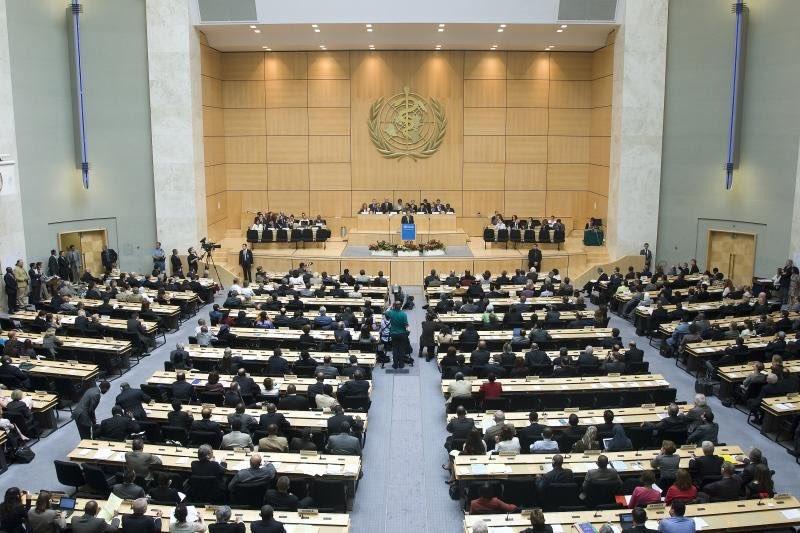
International Health Regulations - five-year global strategic plan
June 1, 2018
|
Delegates welcomed with appreciation a proposed five-year global strategic plan to improve public health preparedness and response, through implementation of the International Health Regulations. The International Health Regulations (IHR) are an international legal instrument that is binding on 196 countries across the world, including all WHO Member States of WHO. Their aim is to help the international community prevent, detect, assess, notify and respond to acute public health risks that have the potential to cross borders and threaten people worldwide. [[{"fid":"1548","view_mode":"default","fields":{"format":"default","alignment":"center","field_file_image_alt_text[und][0][value]":false,"field_file_image_title_text[und][0][value]":false,"external_url":""},"type":"media","field_deltas":{"2":{"format":"default","alignment":"center","field_file_image_alt_text[und][0][value]":false,"field_file_image_title_text[und][0][value]":false,"external_url":""}},"link_text":null,"attributes":{"class":"media-element file-default media-wysiwyg-align-center","data-delta":"2"}}]] |
|
The IHR, which entered into force on 15 June 2007, require countries to report certain disease outbreaks and public health events to WHO. The IHR define the rights and obligations of countries to report public health events, and establish a number of procedures that WHO must follow in its work to uphold global public health security. |
|
In 2017, WHO recorded a total of 418 public health events in its event management system: the initial source in reporting 136 of these was national government agencies, including National IHR Focal Points. The new strategy aims to help countries strengthen and monitor the core capacities they need to implement the regulations, including more reporting through IHR.
|